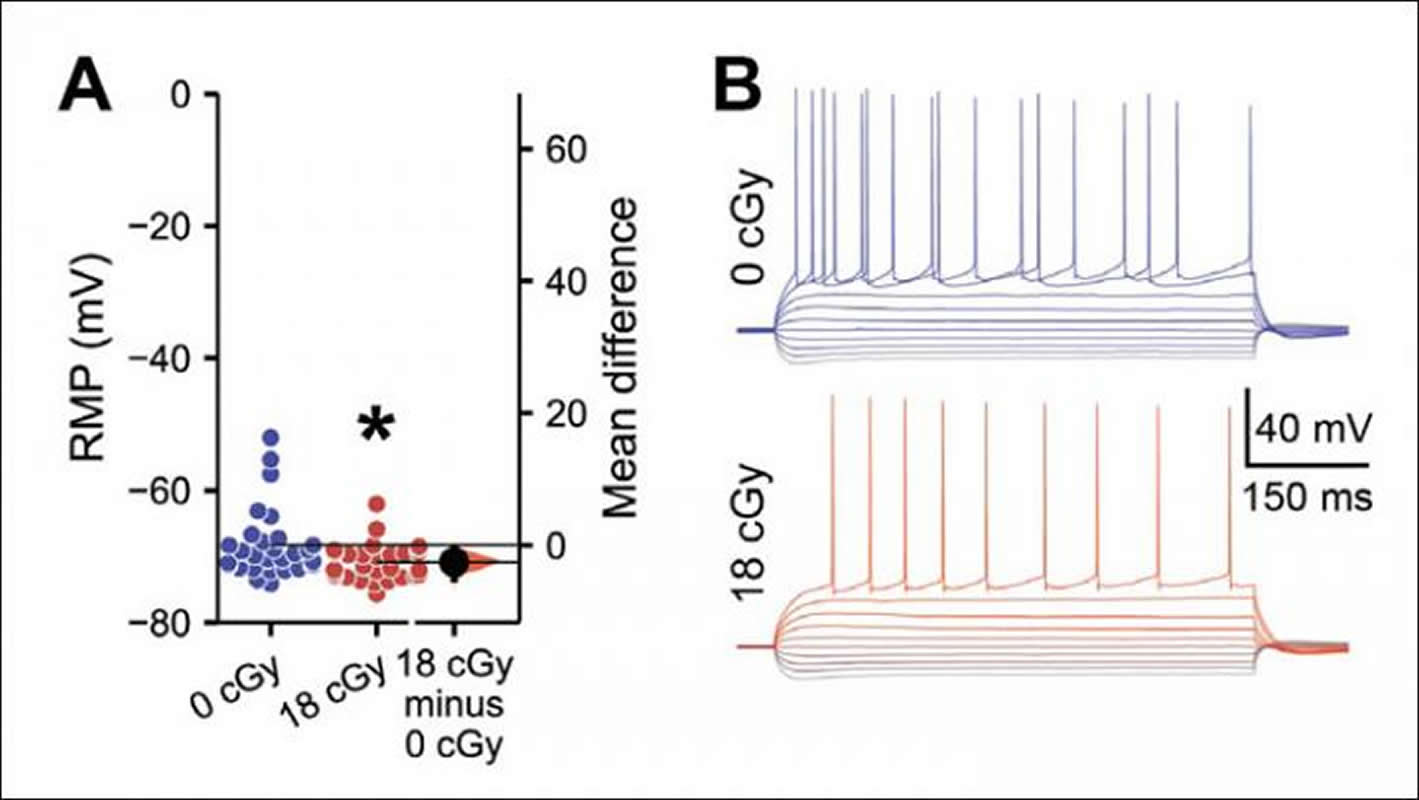Summary: Low dose radiation exposure causes neural and behavioral impairments in mouse models that affect memory and learning.
Source: SfN
Exposure to chronic, low dose radiation — the conditions present in deep space — causes neural and behavioral impairments in mice, researchers report in eNeuro. These results highlight the pressing need to develop safety measures to protect the brain from radiation during deep space missions as astronauts prepare to travel to Mars.
Radiation is known to disrupt signaling among other processes in the brain. However, previous experiments used short-term, higher dose-rate exposures of radiation, which does not accurately reflect the conditions in space.
To investigate how deep space travel could affect the nervous system, Charles Limoli and colleagues at the University of California, Irvine, Stanford University, Colorado State University and the Eastern Virginia School of Medicine exposed mice to chronic, low dose radiation for six months. They found that the radiation exposure impaired cellular signaling in the hippocampus and prefrontal cortex, resulting in learning and memory impairments. They also observed increased anxiety behaviors, indicating that the radiation also impacted the amygdala.

The researchers predict that during a deep space mission approximately one in five astronauts would experience anxiety-like behavior and one in three would experience certain levels of memory impairments. Additionally, the astronauts may struggle with decision-making.
Source:
SfN
Media Contacts:
Calli McMurray – SfN
Image Source:
The image is credited to Acharya et al., eNeuro 2019.
Original Research: Closed access
“New concerns for neurocognitive function during deep space exposures to chronic, low dose rate, neutron radiation”. M. M. Acharya, J. E. Baulch, P. M. Klein, A. A. D. Baddour, L. A. Apodaca, E.A. Kramár, L. Alikhani, C. Garcia, M. C. Angulo, R. S. Batra, C. M. Fallgren, T. B. Borak, C. E. L. Stark, M. A. Wood, R. A. Britten, I. Soltesz and C. L. Limoli.
Nature Biomedical Engineering. doi:10.1523/ENEURO.0094-19.20191
Abstract
New concerns for neurocognitive function during deep space exposures to chronic, low dose rate, neutron radiation
As NASA prepares for a mission to Mars, concerns regarding the health risks associated with deep space radiation exposure have emerged. Until now, the impacts of such exposures have only been studied in animals after acute exposures, using dose rates approximately 1.5×105 higher than those actually encountered in space. Using a new, low dose rate neutron irradiation facility, we have uncovered that realistic, low dose rate exposures produce serious neurocognitive complications associated with impaired neurotransmission. Chronic (6 month) low dose (18 cGy) and dose rate (1 mGy/day) exposures of mice to a mixed field of neutrons and photons result in diminished hippocampal neuronal excitability and disrupted hippocampal and cortical long-term potentiation. Furthermore, mice displayed severe impairments in learning and memory, and the emergence of distress behaviors. Behavioral analyses showed an alarming increase in risk associated with these realistic simulations, revealing for the first time, some unexpected potential problems associated with deep space travel on all levels of neurological function.
Significance Statement
Simulating the space radiation environment to date has been limited by available technology and restricted by the practicalities of implementing protracted terrestrial-based exposures. Now through the use of a new neutron irradiation facility, capable of simulating the realistic low dose rates found in deep space, we have uncovered striking neurobehavioral and electrophysiological defects in rodents subjected to continuous (6 month) low dose rate (1 mGy/day) neutron exposures. This study represents the first to document the significant adverse consequences of space relevant radiation dose rates on the brain, and points to the heightened risks associated with NASA’s upcoming plans for travel to Mars.






